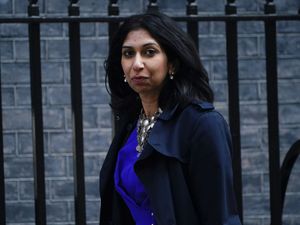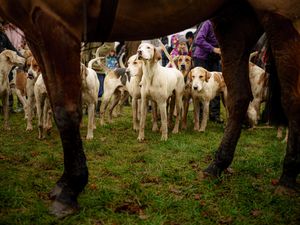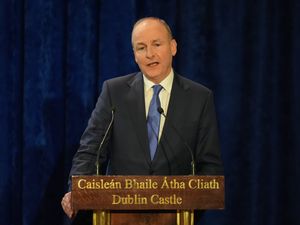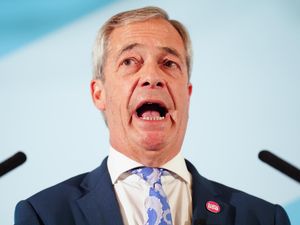Braverman to urge police to stop ‘pandering to political correctness’
The Home Secretary will deliver a speech after the release of data that will show whether the target to recruit 20,000 police officers has been met.

The Home Secretary will call for police to stop “pandering to politically correct preoccupations” and focus on catching criminals.
Suella Braverman is due to deliver a speech on policing following the release of Home Office data at 9.30am on Wednesday which will confirm whether the target to recruit 20,000 police officers has been met.
Opponents previously claimed that the Government, which had until the end of March to reach the figure, was lagging behind its 2019 commitment to replace thousands of jobs cut during austerity measures.
Speaking at the Public Safety Foundation think tank, Ms Braverman is expected to say: “Everything that our police officers do should be about driving down crime and keeping people safe.
“My mantra at the Home Office is simple: more police, less crime, safer streets and common sense policing.
“My vision for common sense policing is as clear as the public’s. It means focusing effort on deterring and catching criminals; not pandering to politically correct preoccupations.
“It means that policemen and women that come from and live in the communities they serve, familiar with local challenges, and familiar to local people.
“Common sense policing means police focused on delivering criminal justice, not social justice. That’s what the public wants.
“I believe in the police. But the policing in which I believe isn’t riven with political correctness but enshrined in good old-fashioned common sense.”
Policing minister Chris Philp on Tuesday said he would be “very disappointed” if the Government does not hit its police recruitment target.
He also admitted he would be disappointed if the new recruits were not any good at their job when he faced questions from MPs on the manifesto pledge.
Mr Philp told the Commons Home Affairs Committee that the Government was “on track to have record numbers of officers across England and Wales”.
Asked by Conservative committee member Tim Loughton if he would be disappointed if the figures do not show there are an additional 20,000 officers, Mr Philp replied: “Yes, very.”
Mr Loughton added: “How disappointed would you be if those 20,000 officers turned out not actually to be terribly good?”
“Well, I’d be disappointed by that as well,” Mr Philp said, adding: “Now, clearly, the police have recruited a large number of new officers in recent years who are therefore, by definition, less experienced.
“It’s really important that the sergeants and the inspectors who oversee them, mentor them, give them the support and the training they need.”
Figures published in January showed that more than 3,000 police officers needed to be hired in less than three months in order to meet the target.
As of December, 16,753 officers had been hired as part of the recruitment campaign, meaning 84% of the target had been reached, with 3,247 recruits still needed.
According to The Sunday Telegraph, some police forces had been inviting back failed candidates as part of efforts to meet the target, which fuelled fears of rogue officers infiltrating the ranks.

The Home Office expected to spend £3.6 billion on the recruitment programme by March, with a total cost of £18.5 billion over the next 10 years, according to Whitehall’s spending watchdog.
In June, the National Audit Office (NAO) warned the recruitment campaign would “exacerbate pressure” on a criminal justice system which is “already under strain” in the wake of the coronavirus pandemic.
It also said hiring police community support officers (PCSOs), special constables or police staff to fill the roles could lead to vacancies elsewhere in the service.
Meanwhile, inspectors from police watchdog His Majesty’s Inspectorate of Constabulary and Fire and Rescue Services (HMICFRS) said problems at the Metropolitan Police had been exacerbated by the number of young and inexperienced recruits in the force as a result of the recruitment drive.
A month earlier, the outgoing chief inspector of constabulary, Sir Thomas Winsor, repeated warnings that the “sheer magnitude and speed” of the recruitment campaign “inevitably carries risks”, adding that there is a “heightened danger that people unsuited to policing may get through and be recruited”.
In October, Met Commissioner Sir Mark Rowley said he was reviewing the force’s recruitment targets after questioning whether it is “wise” to hire thousands of new officers at speed.
Scotland Yard was meant to hire 4,557 extra officers during the recruitment drive.
The Home Office said all recruits are subject to a “rigorous” vetting process and must meet national standards in order to be hired.





